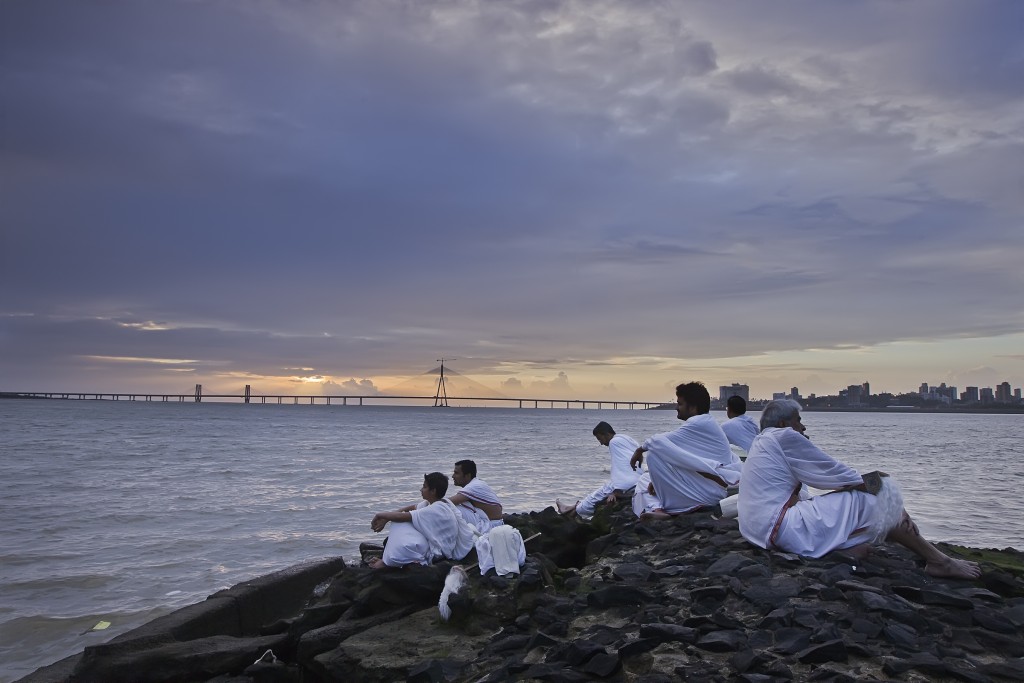An unusual photographer (Aida El-Kashef ) grapples with the loss of her intuitive brilliance as an aftermath of a clinical procedure; an erudite monk (Neeraj Kabi), confronting an ethical dilemma with a long held ideology, has to choose between principle and death; and a young stockbroker (Sohum Shah), following the trail of a stolen kidney, learns how intricate morality could be…
This is perhaps the most difficult review I’ve had to write for Upperstall. And that’s because Ship of Theseus is a difficult film to review. It is not merely a film, but quite simply a rich cinematic elevating experience that one has not gone through for a long, long time in Indian cinema. To put it simply, it is one of the finest films to come out of India in the last few years.
This deeply philosophical and original film, directed by Anand Gandhi, is crafted beautifully and meticulously with passion. It is meditative, contemplative, thought-provoking, gentle, raw, and yes, even humorous, but above all, true and humane. Each of the three stories with an organ at the centre that needs replacing as the common factor, works beautifully on its own, and yet it all comes together in the end for a highly satisfying ending. It is one of those films that leaves you quiet at the end, yet elated and you just want to let it all sink in. That is something very few films achieve. And remember, the film was skating on wafer thin ice and could have been one of those pretentious, art films but rest assured, it is not! It is a highly assured debut by as is well-known now soap writer Anand Gandhi, who clearly is one filmmaker to watch out for.
The film and its issues is of course a metaphor for Theseus’ paradox – which questions whether an object that has its parts replaced remains the same object. This comes through tellingly and in a comparatively much more accessible manner in the first and third tale, where the characters have a more obvious graph and find themselves so to say after their operations. The tale of the blind photographer questions the very fact that when we ‘see’, do we really see or even if we can’t see, do we really ‘see’ as she begins to question her ability after her eyesight is restored? The stock broker has a change of conscience and emerges a better human being. It is the middle tale that is the more complex and layered one of the monk who is suffering from cirrhosis of the liver, but refuses medication for his transplant operation as he opposes the cruelty on animals in the testing process. However, it is here that sometimes the self consciousness of the philosophical tone of the film comes though, and with the Interval designed right in the middle of this story, it is further hampered by us having to watch it disjointedly in two segments. A pity, really, because some of the more poetic visuals of the film are in this segment.
The casting is spot on and each and every character is correctly cast. So I am not going into who works and who doesn’t. They are all right on the button and what’s more important, real flesh and blood people who ring true.
Technically, the film is crafted expertly with a highly evolved visual design with some great use of the telephoto lens and an equally evocative soundtrack, making superb use of real locations. The editing maintains the languid and meditative rhythm of the film and you can’t fault the production design either. And a big, big credit to the dialogue that could easily have sounded stilted and superficial, but which sidesteps the obvious traps.
For many who have caught it on the Festival circuit, Ship of Theseus was the Best Indian film of the year last year itself but as I have watched it only now at the time of its Indian theatrical release, I would have to stay it is, by far, the finest Indian film I have seen this year, and I really doubt whether any other film might come close. A big, big thumbs up to this one!
English, Hindi, Drama


